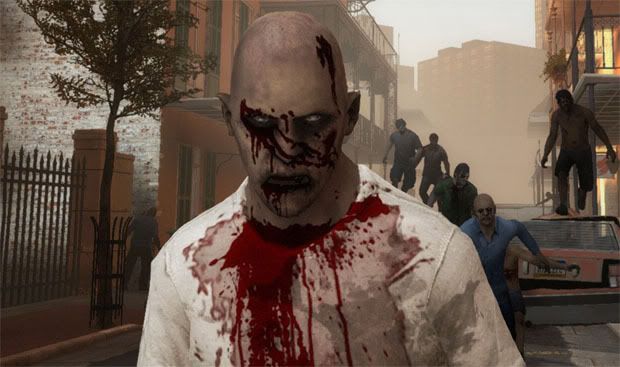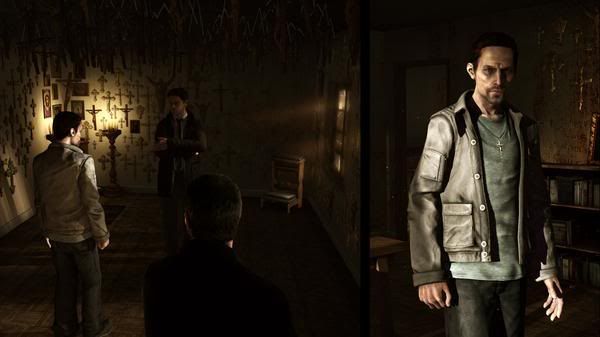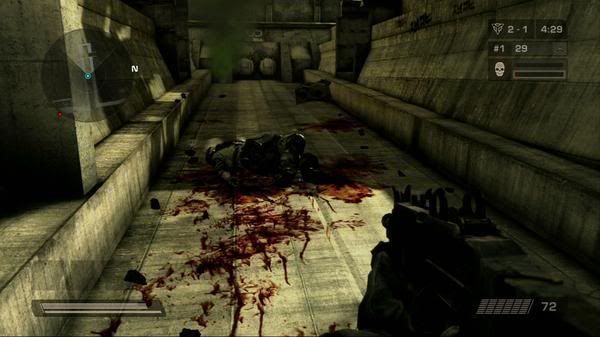This post has not been edited by the GamesBeat staff. Opinions by GamesBeat community writers do not necessarily reflect those of the staff.
No hesitation.
When "infected" humans (zombies for all intents and purposes) broke into a house to assault Jim and his new friends with a surprise attack in 28 Days Later, that's what Selena knew. Her friend Mark showed signs of ravenous bites on his forearm post-confrontation. Although he pleaded for her to wait, she hacked him to pieces before he could finish the sentence. His blood sprayed all over her and the back wall.

Zombies in film are about dehumanization. They are a vessel — sometimes a metaphor for death (Night of the Living Dead) or a commentary on our materialist detachment from one another (Dawn of the Dead) — through which we turn humans into "other."
This industry is no stranger to that sort of superiority assertion: For a recent example, look no further than Electronic Arts's backpedaling from Taliban to "opposing force" in multiplayer matches for Medal of Honor. In many ways, such characterization of your enemies as "other" is entirely necessary for us to accept the murderous toll we will inflict upon a virtual world.
And that's why zombies are the perfect video-game adversary.
We've slaughtered parades of nameless, faceless enemies: demons, soldiers, fantasy clichés, invading aliens…the list goes on. Think about these individuals you've put six feet under: Can you recall their reasons for charging the battlefield? Why did they fight you? Sure, you might know the motivation of their affiliated organizations or superiors, but you haven't the slightest idea what drove them to individually take up arms against you in the first place.
Not all titles rob the humanity from non-player characters. I think about the sequence in Heavy Rain where FBI agent Norman Jayden must decide whether to shoot a overly religious man, Nathaniel, who Lieutenant Blake believes to be the Origami Killer. Jayden is clearly conflicted after just having rummaged through the suspect's home looking for clues and coming up empty.

But what if Nathaniel was a zombie? Jayden wouldn't need to worry about anything he'd learned in his search of the apartment: that Nathaniel appears mentally disturbed — obsessed with pills and Christ — to the detriment of his own well-being. Rather, he'd know that he couldn't possibly reason with a shadow of a former person. He has but two options: shoot or be killed.
We don't need to know why a zombie chases us down back-alley streets. Instinctively, we know that the undead will stop at nothing in order to tear our flesh and consume our bodies. The reanimated (unless you buy into the later, crappy Romero films) don't even think! They're mindless — drawn only to the scent of blood. At a literal, physical level, mass genocide of decomposing former humans makes perfect sense in a video game. We can more easily frame their "murders" as self-defense without any feeling of guilt.
And this is necessary, because we subconsciously use video games to excite our most carnal desires. We pull the strings of virtual sociopaths as we rack up kills in the most gory fashion possible. Zombie films are among the most violent and blood-soaked of the silver screen, which is a perfect parallel to the ways that game technology has advanced. From the shattered limbs of stock street punks in Soldier of Fortune (2000) to the stagger-inducing wounds of masked Helghast troopers from Killzone 2 (2009), we revel in their expertly animated deaths.

On a metaphorical level, zombies embody the concept of a slow, creeping Reaper. They are cigarettes, fatty foods, alcoholic beverages, and unprotected sex. We're agile enough to outrun the unintended side effects of such things for quite some time, but eventually our indulgences catch up to us. That's when the undead horde swarms our last stand in the farmhouse just as we run out of shells — so overwhelming that we cannot escape.
At their most basic, games are about not losing (i.e., dying); they are about surviving to the end. So every shotgun blast to the decomposing face is a notch against the threat of death. Killing zombies is the very essence of this medium.
As tired of them as you may be, these reanimated monstrosities are here to stay; because like the Nazi, they represent an adversary perfectly suited for the style of ultraviolent games we love to consume. They provide us a justifiable excuse to reign an exquisitely grotesque onslaught of murder onto our fellow humans, but they also embody the exact state of being that is the antithesis to victory.
